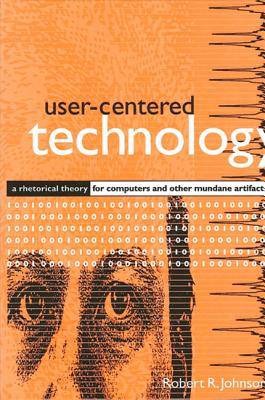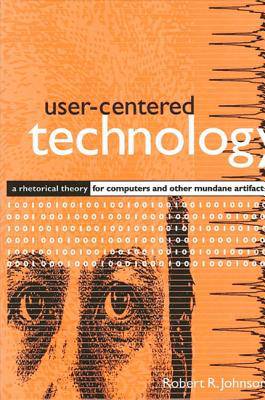
- Afhalen na 1 uur in een winkel met voorraad
- Gratis thuislevering in België vanaf € 30
- Ruim aanbod met 7 miljoen producten
- Afhalen na 1 uur in een winkel met voorraad
- Gratis thuislevering in België vanaf € 30
- Ruim aanbod met 7 miljoen producten
Zoeken
User-Centered Technology
A Rhetorical Theory for Computers and Other Mundane Artifacts
Robert R Johnson
€ 145,45
+ 290 punten
Uitvoering
Omschrijving
User-Centered Technology presents a theoretical model for examining technology through a user perspective. Johnson begins with a historical overview of the problem of technological use from the ancient Greeks to the present day--a problem seen most clearly in historical discussions of rhetoric theory. The central portion of the book elaborates on user-centered theory by defining three focal issues of the theory: user knowledge, human-technology interaction, and technological determinism. Working from an interdisciplinary perspective, Johnson uses rhetoric theory to present a definition of user knowledge; human factors engineering to illuminate the ideological presuppositions built into technology design; and history, philosophy, and sociology to explain technological determinism, possibly the greatest impediment to user-centered technology development in modern times. The latter part of the book applies user-centered theory in two contexts: the nonacademic sphere, where the writing and design of computer user documentation is discussed, and the academic sphere, through a discussion of how user-centered concepts might drive university technical communication and composition curricula.
Specificaties
Betrokkenen
- Auteur(s):
- Uitgeverij:
Inhoud
- Aantal bladzijden:
- 195
- Taal:
- Engels
- Reeks:
Eigenschappen
- Productcode (EAN):
- 9780791439319
- Verschijningsdatum:
- 5/11/1998
- Uitvoering:
- Hardcover
- Formaat:
- Genaaid

Alleen bij Standaard Boekhandel
+ 290 punten op je klantenkaart van Standaard Boekhandel
Beoordelingen
We publiceren alleen reviews die voldoen aan de voorwaarden voor reviews. Bekijk onze voorwaarden voor reviews.











